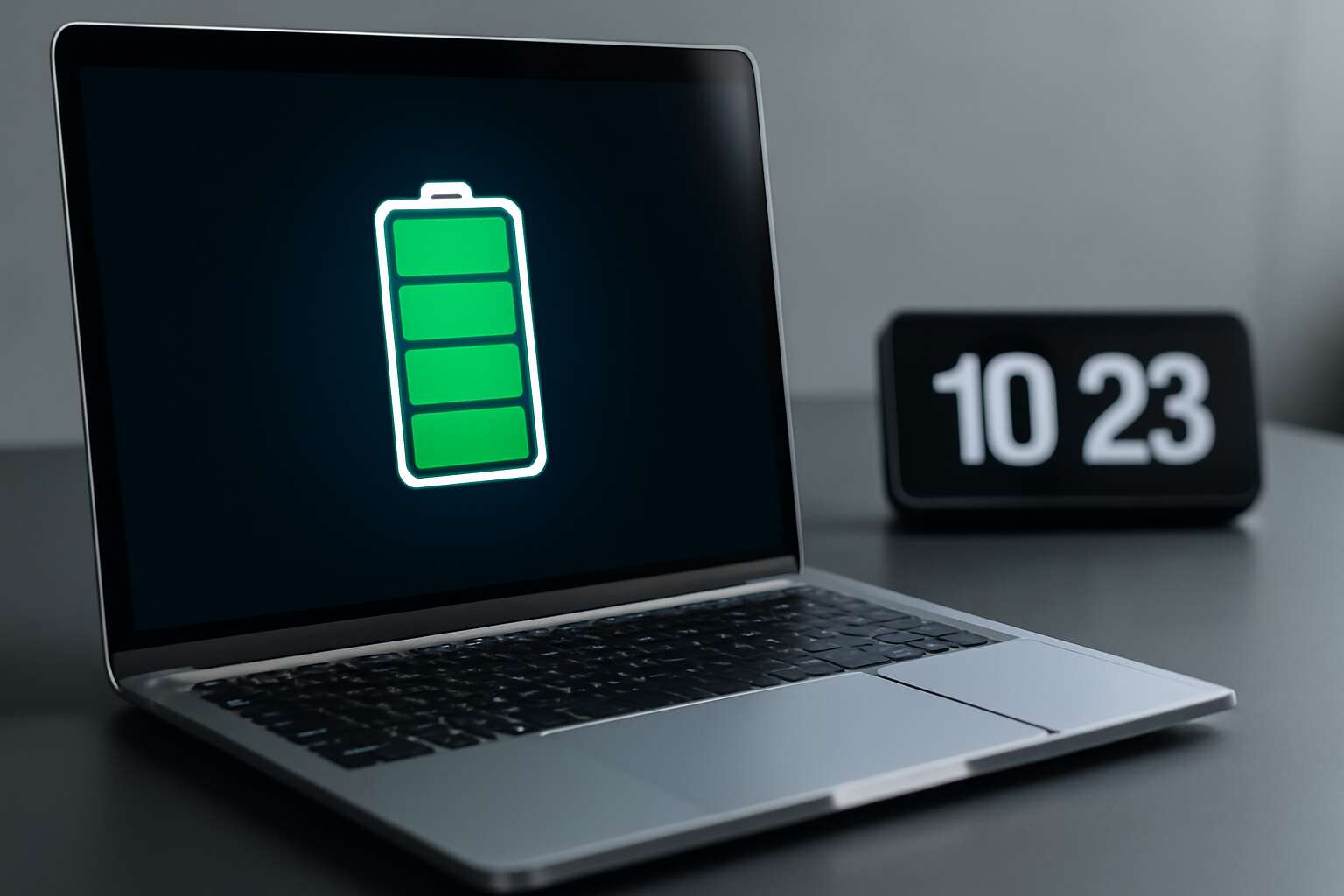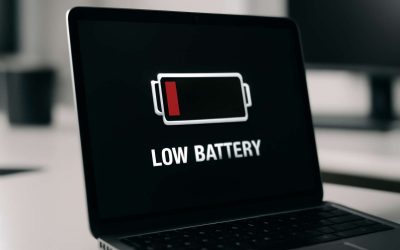Understanding Laptop Battery Lifespan
Overview of Battery Types – Different types of laptop batteries (Li-ion, Li-polymer) and their characteristics
In the grand tapestry of technology, understanding how long are laptop batteries supposed to last remains a crucial thread for both professionals and casual users alike. The lifespan of these power cores hinges upon their composition and usage, often shrouded in myth and misconception. Among the most common types are lithium-ion (Li-ion) and lithium-polymer (Li-polymer) batteries, each with unique characteristics that influence their longevity.
Li-ion batteries, revered for their energy density and longevity, typically endure between 300 and 500 charge cycles before their capacity diminishes significantly. Conversely, Li-polymer batteries, known for their flexibility and thinner profile, tend to offer a slightly extended lifespan, often matching or surpassing 500 cycles under optimal conditions. Their resilience in the face of fluctuating environmental factors makes them a preferred choice for sleek, modern laptops.
Understanding these distinctions can reveal why some laptops maintain their vigor longer than others. It’s essential to consider that factors such as temperature, charging habits, and overall maintenance subtly weave into the story of how long are laptop batteries supposed to last, guiding us toward better care and extended performance.
Average Lifespan of Laptop Batteries – Typical duration in terms of years and charge cycles
When pondering the question of how long are laptop batteries supposed to last, it’s essential to recognize that lifespan extends beyond mere years. Typically, a well-maintained lithium-ion battery can serve between two to three years, or roughly 300 to 500 charge cycles. This cycle count isn’t just a number; it’s a measure of the battery’s resilience, a testament to its capacity to store and deliver energy over time.
Yet, the reality is often more complex. Batteries don’t simply fail after reaching a certain cycle; their capacity gradually diminishes, sometimes silently, as they endure daily stresses. Under optimal conditions, some Li-polymer batteries might push beyond 500 cycles, subtly losing their vigor but still functioning. The key lies in understanding that how long are laptop batteries supposed to last varies significantly based on usage patterns, environmental factors, and care. It’s a delicate dance—one that underscores the importance of mindful charging habits and temperature control.
Factors Influencing Battery Longevity – Usage patterns, battery health, environmental conditions
Understanding the lifespan of a laptop battery goes beyond simply tallying up years or charge cycles. In reality, the longevity of a battery hinges on a complex interplay of usage patterns, environmental conditions, and overall battery health. For instance, frequent deep discharges or leaving your device plugged in constantly can accelerate capacity fade, making it crucial to monitor how long are laptop batteries supposed to last in everyday scenarios.
Environmental factors play a pivotal role as well. High temperatures—common in many South African climates—can cause irreversible damage to lithium-ion batteries, reducing their effective lifespan. Conversely, keeping your device in a cool, dry place helps preserve battery integrity. To get the most out of your laptop’s power source, consider adopting mindful charging habits and avoiding extreme temperatures, because these subtle choices significantly influence how long are laptop batteries supposed to last.
Expected Battery Life Under Normal Usage
Daily Usage Duration – Average hours a laptop battery lasts on a full charge during typical use
In the delicate ballet of modern life, where productivity hinges on seamless connectivity, understanding how long are laptop batteries supposed to last becomes essential. Most laptops under normal usage—browsing, streaming, document editing—offer a daily endurance of about 4 to 8 hours on a full charge. This window can feel like a fleeting whisper in a busy day, yet it’s a testament to the remarkable efficiency of current battery technology.
For those juggling multiple tasks, it’s fascinating to note that the average laptop battery life varies depending on the device’s age, hardware, and software demands. Typically, newer models equipped with lithium-ion or lithium-polymer batteries can sustain a full day’s work without seeking an outlet. The key lies in striking a balance—using your device with care, ensuring optimal battery health, and recognizing that how long are laptop batteries supposed to last is often a reflection of mindful usage.
- Light tasks like email or note-taking may stretch battery life closer to 10 hours.
- Intensive activities such as gaming or video editing tend to drain power within 3 to 4 hours.
In this intricate dance of energy and endurance, knowing how long are laptop batteries supposed to last becomes a vital piece of the puzzle—guiding users to cherish the fleeting moments of power and prepare for the inevitable recharge.
Battery Cycle Count – Understanding what constitutes a recharge cycle and its impact
Understanding the concept of battery cycle count is crucial in answering how long are laptop batteries supposed to last. A recharge cycle occurs each time you use a full 100% of your battery’s capacity, whether in one go or multiple partial charges. Over time, these cycles wear down the battery’s ability to hold a charge.
Most modern laptop batteries are rated for about 300 to 500 full charge cycles. After reaching this threshold, you might notice a significant drop in battery life. For example, a laptop that initially offers 8 hours of use may only provide 4 to 5 hours after hitting that limit. It’s helpful to keep track of your cycle count, as exceeding the recommended number accelerates battery degradation.
- Battery cycle count directly impacts the longevity of your device’s power source.
- Reducing unnecessary recharges can extend the overall lifespan of your battery.
- Manufacturers often specify the expected cycle count before replacing becomes necessary.
Knowing how long are laptop batteries supposed to last in terms of cycle count allows you to plan maintenance and optimize usage, ensuring your device remains efficient for years to come.
Performance Degradation Over Time – How battery capacity diminishes with age and use
As your trusty digital companion matures, so does its battery—like a seasoned storyteller whose energy wanes with each chapter. On average, a laptop battery is expected to last between 2 to 4 years, or roughly 300 to 500 charge cycles. Yet, this lifespan isn’t etched in stone; it ebbs and flows based on how often and how vigorously you recharge. With every cycle, the battery’s capacity diminishes, whispering subtle hints of fatigue—shorter hours of use and slower charging times become familiar echoes.
Over time, the once vibrant power source gradually loses its edge, making it essential to understand how long are laptop batteries supposed to last under normal usage. Typically, a laptop on a full charge can serve up to 8 hours during light activity, but as the battery ages, this might dwindle to just 4 or 5 hours. The secret lies in appreciating that battery performance is a delicate dance between age, cycle count, and usage patterns—each contributing to the quiet decline of its vitality.
In the grand tapestry of technology, knowing the expected performance degradation over time helps you cherish your device’s lifespan. After all, a well-tended battery doesn’t just power your laptop; it fuels your productivity and imagination for years to come.
Signs of a Deteriorating Laptop Battery
Reduced Battery Runtime – Noticing shorter usage times between charges
In the dim corridors of technology, the question lingers—how long are laptop batteries supposed to last? As the years pass, even the most well-tended batteries begin to whisper their decline. One unmistakable sign of a deteriorating laptop battery is reduced battery runtime. Suddenly, that familiar hour of work dwindles to mere minutes, leaving you stranded in a digital abyss. This shrinking window of power is often a silent scream—your device’s way of telling you it’s nearing its final days.
When the battery’s capacity diminishes, the laptop struggles to hold a charge, forcing users to seek out power sources more frequently. If your device no longer sustains the usual hours of operation or if it suddenly shuts down at 20% rather than 5%, these are telltale signs that your battery’s vitality has waned. In some cases, an increase in battery cycle count or unexplained overheating can also serve as silent indicators of impending failure. Recognizing these signs early can save you from the chaos of unexpected shutdowns, as you ponder—how long are laptop batteries supposed to last? — and confront the inevitable decline of this vital component.
Unexpected Shutdowns – Battery not providing sufficient power leading to shutdowns
One of the clearest signs of a deteriorating laptop battery is unexpected shutdowns. Imagine working diligently, only to be abruptly cut off because the battery can no longer provide sufficient power. This sudden loss of energy isn’t just frustrating—it’s a warning sign that your battery’s capacity has diminished significantly. When a laptop shuts down before reaching the critical 5% remaining, it’s a stark indicator that the battery can’t sustain your workflow anymore.
Persistent shutdowns can be traced back to a declining ability of the battery to hold a charge. As the internal cells weaken over time, they struggle to deliver consistent power, especially under load. If you notice your device turning off unpredictably, especially when the indicator shows more than 10% remaining, it’s time to consider the lifespan of your battery. Typically, these issues emerge after about 300 to 500 charge cycles, but the exact timing varies depending on usage and environmental factors.
Understanding how long are laptop batteries supposed to last is crucial—because once they reach their limit, these shutdowns become more frequent. A battery nearing the end of its life often exhibits a reduced ability to sustain continuous operation, forcing users to find power outlets more often than before. If you’re experiencing these symptoms, it might be time to evaluate your battery’s health and prepare for a replacement before the device becomes unreliable in critical moments.
Charge Retention Issues – Difficulty holding a full charge or rapid discharges
As laptops become integral to both work and leisure, understanding how long are laptop batteries supposed to last is vital. One of the most telling signs of a deteriorating battery is its inability to hold a full charge. You might notice your device draining faster than usual, even after a full recharge, or discharging rapidly during use. This phenomenon isn’t just inconvenient—it signals that the internal cells are losing their capacity to store energy effectively.
Reduced battery runtime often manifests as shorter periods of usage between charges, leaving users frustrated and constantly hunting for power outlets. Sometimes, your laptop may even shut down unexpectedly, despite showing a seemingly sufficient charge. These issues typically become more pronounced after hundreds of charge cycles, highlighting the importance of monitoring how long are laptop batteries supposed to last as they age.
Battery cycle count is a key factor here—each recharge slightly diminishes the battery’s ability to deliver consistent power. When the internal chemistry weakens, rapid discharges become more frequent, and the device’s performance declines. If you notice your laptop’s battery isn’t performing like it used to, it’s a clear indication that it’s nearing the end of its natural lifespan and that its capacity has significantly diminished.
Maximizing Your Laptop Battery Lifespan
Proper Charging Habits – Avoiding overcharging and full discharges
Many users are left in the dark about how long are laptop batteries supposed to last before they need a replacement. The truth is, improper charging habits can dramatically shorten that lifespan, turning a once-reliable device into a sluggish, unpredictable companion. It’s not just about plugging in; it’s about knowing when to stop. Overcharging a laptop battery can cause it to overheat, accelerating capacity loss, while frequent full discharges strain the delicate cells within. The key is to strike a balance—charging enough to avoid unexpected shutdowns without pushing the battery to its limits.
To maximize your battery’s durability, consider adopting proper charging habits. For instance, keeping your battery between 20% and 80% charge can significantly extend its overall lifespan. Avoid leaving your laptop plugged in constantly, as this can cause the battery to remain in a high-stress state that hastens degradation. Monitoring your battery cycle count—each full charge and discharge—also offers insight into its health. Remember, knowing how long are laptop batteries supposed to last helps you plan smarter, ensuring your device remains a powerhouse for years to come!
Optimal Storage Conditions – Storing batteries at appropriate temperatures and charge levels
Maximizing your laptop battery lifespan hinges on understanding the delicate balance between environmental conditions and storage practices. Batteries thrive in cool, dry settings—think of them as tiny, temperamental creatures that prefer a temperate climate. Storing your device at high temperatures accelerates capacity loss, leaving you stranded in a less-than-ideal power situation. Conversely, keeping your battery in a cool place, ideally between 15°C and 25°C, helps maintain its vitality and prolongs its functional life.
To truly preserve your laptop battery, it’s wise to store it at around 50% charge if you won’t be using it for an extended period. Keeping the charge level balanced ensures the cells don’t degrade prematurely. Remember, batteries aren’t fans of constant full charges or complete discharges; instead, a gentle, partial charge cycle is far gentler on their cells. In fact, following a few simple storage rules can make a significant difference:
- Store in a cool, dry environment.
- Maintain a charge level of around 50%.
- Avoid exposing your device to direct sunlight or heat sources.
By respecting these guidelines, you can help your laptop battery retain its strength for years to come, ensuring that when you ask yourself, “how long are laptop batteries supposed to last?” you receive a satisfying answer—one that involves many years of reliable service and vibrant power!
Software and Firmware Updates – Keeping battery management software up to date
Keeping your laptop’s battery in peak condition isn’t solely about storage; it also hinges on the software that manages power consumption. Software and firmware updates play a pivotal role in maximizing your laptop battery lifespan. When manufacturers release updates, they often include refined algorithms for battery management that can improve efficiency and reduce unnecessary drain.
Ensuring your device runs the latest firmware can prevent premature capacity loss, which is a common concern when pondering how long are laptop batteries supposed to last. Many users overlook this simple step—yet it’s akin to giving your laptop a much-needed health check.
Additionally, some updates optimize power settings, background processes, and hardware interactions, all of which contribute to prolonging the battery’s vitality. Regularly checking for these updates is a subtle but powerful habit that can translate into many extra months of reliable performance. After all, a well-maintained software ecosystem is the secret ingredient in the recipe of a long-lasting battery.
Replacing and Maintaining Laptop Batteries
When to Consider Battery Replacement – Indicators that it’s time for a new battery
Ever wondered how long are laptop batteries supposed to last before they start behaving like moody teenagers—moody, unpredictable, and ready to quit at the worst moment? The truth is, most laptop batteries are designed to deliver between 300 to 500 charge cycles, which translates to roughly 2 to 3 years of decent performance for the average user. But as the battery ages, you’ll notice a dramatic shift in how long it can keep your device powered up.
Recognizing the signs that it’s time for a battery replacement can save you from embarrassing shutdowns during crucial Zoom calls or important work deadlines. Indicators include significantly reduced runtime, unexpected shutdowns, or a battery that refuses to hold a charge no matter how many times you hit “maximize battery life.” If your laptop’s battery health drops below 80%, it’s a good idea to start considering a replacement. After all, knowing how long are laptop batteries supposed to last can help you avoid the dreaded “battery death” and keep your productivity on point!
DIY Replacement Tips – Guidelines for replacing a laptop battery safely and correctly
Replacing a laptop battery might seem straightforward, but doing so with care ensures longevity and safety. Before diving into a DIY replacement, it’s essential to power down your device completely and unplug all accessories. Carefully remove the back panel or battery compartment cover, depending on your model—many modern laptops feature internal batteries that require a bit more finesse.
To avoid damaging sensitive components, always use the correct tools and handle the battery by its edges. When installing the new battery, make sure to align it properly with the connectors and click it into place securely. Confirm that all screws are tightened evenly to prevent pressure points that could harm the internal circuitry.
For those seeking a systematic approach, consider following a simple numbered sequence:
- Power off and disconnect your laptop.
- Locate and remove the old battery carefully.
- Insert the new battery, ensuring secure connections.
- Reassemble your device and power it on to check functionality.
Proper maintenance and cautious handling during replacement can significantly extend the lifespan of your laptop battery, helping you answer the question—how long are laptop batteries supposed to last?—with confidence and clarity.
Professional Maintenance Services – Seeking expert help for battery issues
When it comes to maintaining the vitality of your laptop’s power source, seeking professional maintenance services can make all the difference. Expert technicians can accurately diagnose issues like rapid battery degradation or uneven charge cycles, ensuring your device continues to perform optimally.
Often, the question arises—how long are laptop batteries supposed to last? While the typical lifespan ranges from two to three years or roughly 300 to 500 charge cycles, many factors influence this timeline. Professionals can assess whether your battery’s capacity has diminished prematurely or if an upgrade is warranted.
A reliable maintenance service not only extends the operational life of your battery but also safeguards internal components from damage during replacement. When your device shows signs of reduced runtime or unexpected shutdowns, professional intervention can restore its efficiency, ensuring your investment remains resilient against the wear of time.
Latest Advancements in Laptop Battery Technology
Enhanced Battery Materials – Emerging technologies for better longevity and performance
Recent breakthroughs in battery technology are pushing the boundaries of how long are laptop batteries supposed to last. Emerging advancements in enhanced battery materials, such as solid-state electrolytes and silicon anodes, promise not only improved longevity but also heightened performance. These innovations reduce internal resistance, allowing for faster charging and longer usage times, which directly address the persistent question of how long are laptop batteries supposed to last in a world that demands relentless connectivity.
By integrating cutting-edge materials, manufacturers are now experimenting with batteries that can sustain more charge cycles without significant capacity loss. This means users can expect their laptops to maintain optimal performance for a longer period—sometimes exceeding the traditional two to three-year lifespan. As these technologies mature, the average lifespan of laptop batteries will likely extend, reshaping expectations and redefining the limits of portable power. No longer is it a mystery of “how long are laptop batteries supposed to last”; instead, it’s an evolving story driven by innovation and resilience.
Fast Charging and Longer Cycle Life – Improvements in charging speeds and lifespan
In an era where instant connectivity is king, the question of how long are laptop batteries supposed to last has become more pertinent than ever. Fortunately, recent advancements in laptop battery technology are rewriting the script. Fast charging capabilities now mean you can juice up your device in a fraction of the time, often achieving a 50% charge in just 30 minutes. Meanwhile, longer cycle life innovations extend the lifespan of batteries, ensuring they endure more charge cycles without significant capacity loss. This means your laptop’s battery can sustain its performance well beyond the traditional two to three years, often reaching four or even five years with proper care.
Manufacturers are also experimenting with battery materials that resist degradation, such as solid-state electrolytes and silicon anodes. These improvements not only enhance longevity but also optimize charging speeds, reducing downtime and keeping users seamlessly productive. In short, the evolution of battery technology is gradually shifting the narrative from “how long are laptop batteries supposed to last?” to “how long can they last?”—a question that’s increasingly answered by innovation and smarter engineering.
Eco-Friendly Alternatives – Sustainable options for battery production and disposal
In the relentless march toward sustainability, the latest advancements in laptop battery technology are not merely about performance—they whisper promises of a greener future. Eco-friendly alternatives are now at the forefront, combining innovation with responsibility. These sustainable options for battery production and disposal are transforming the lifecycle of our devices, ensuring that longevity does not come at the planet’s expense.
Materials such as solid-state electrolytes and silicon anodes are paving the way for batteries that resist degradation while reducing environmental impact. Manufacturers are increasingly embracing recyclable components and biodegradable casings, making it possible to extend battery life without sacrificing ecological integrity. This evolution prompts the question—how long are laptop batteries supposed to last? The answer is shifting, propelled by these green innovations, which aim to stretch the boundaries of durability and sustainability in tandem.
In South Africa’s vibrant tech landscape, the pursuit of eco-conscious battery solutions resonates deeply. As consumers become more aware of their ecological footprint, the drive for sustainable options intensifies. The future of laptop batteries is not only about how long they last but also about how well they serve our planet—an inspiring symphony of progress and responsibility.




0 Comments